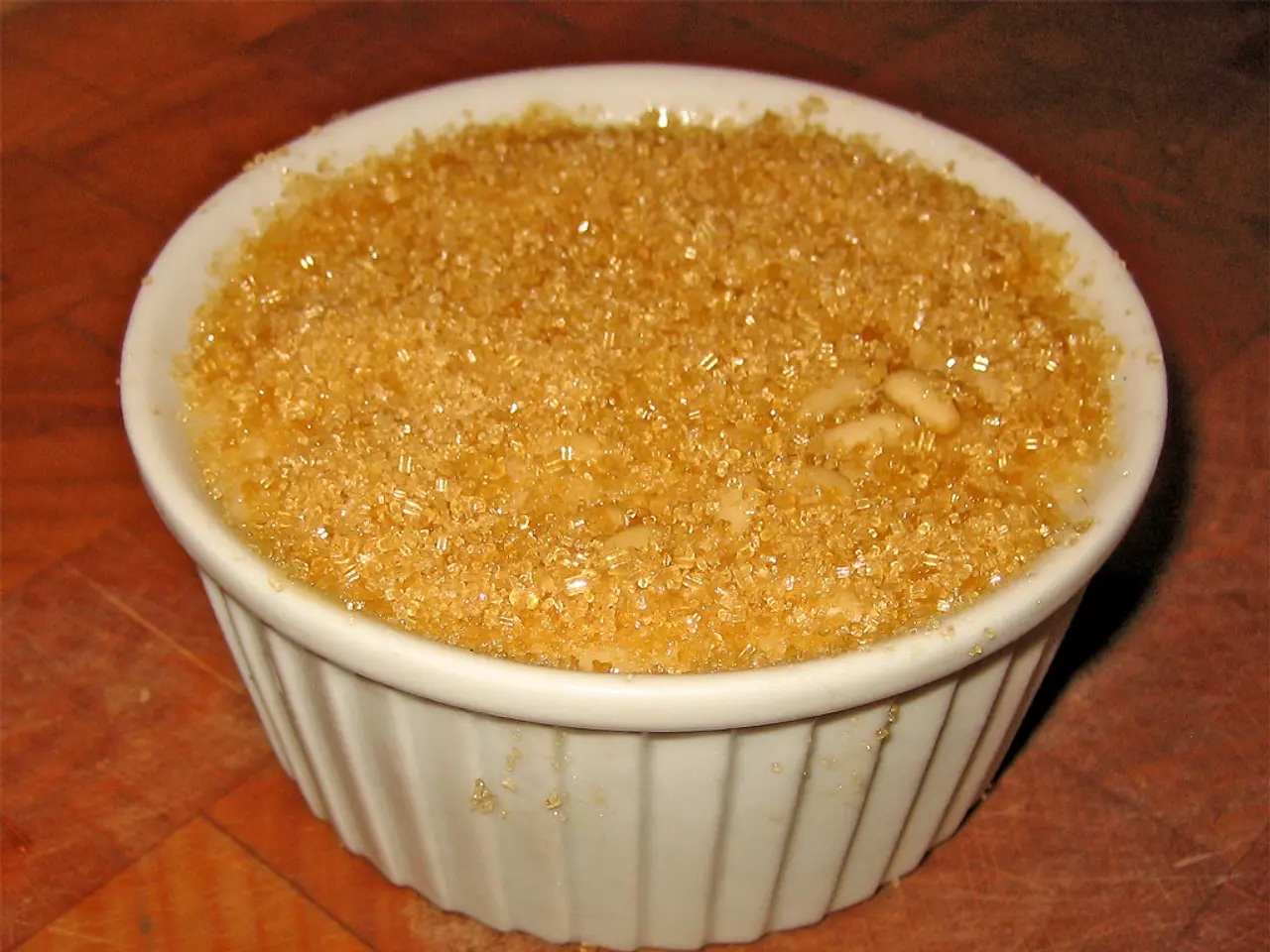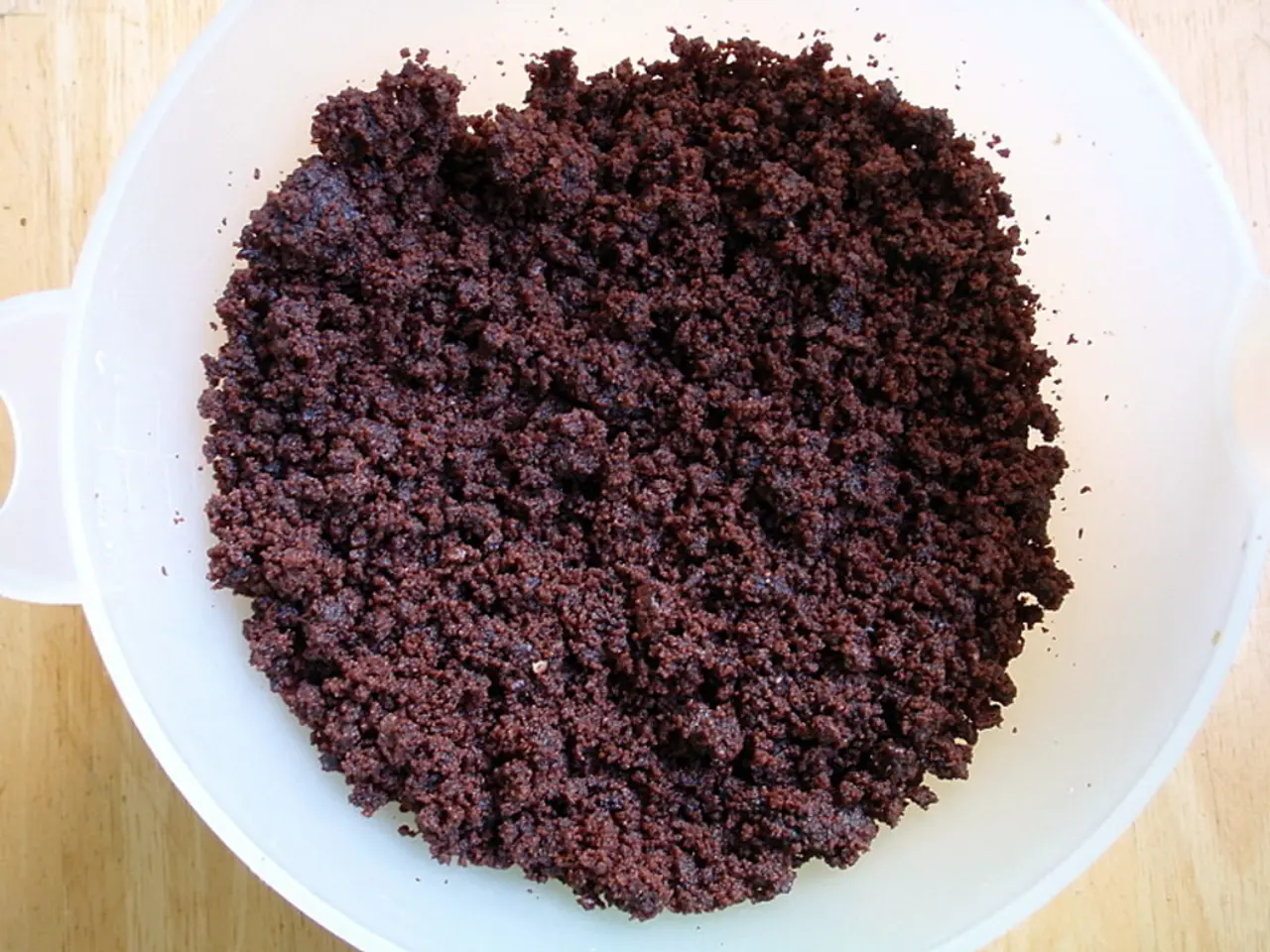Exploring Probiotics and Their Potential Benefits in Managing Crohn's Disease: A Review of Recent Studies
The latest research suggests a potential role for probiotics in managing symptoms of Crohn's disease, a chronic inflammatory bowel disorder. However, the picture remains inconclusive, with ongoing debates about the efficacy of probiotics in this context.
Probiotics, live microorganisms with health benefits, could help manage Crohn’s disease by balancing the gut microbiome, which is often altered in people with the condition. Restoring a healthier microbial balance could reduce abnormal immune responses and intestinal inflammation, potentially easing symptoms like diarrhea and gastrointestinal irritation.
However, there is no definitive evidence that specific probiotic strains are beneficial for Crohn’s disease treatment. Studies frequently use strains such as *Lactobacillus* and *Bifidobacterium*, but current data do not support recommending any particular strain systematically for Crohn’s. Some probiotic formulations like VSL#3 have shown promise, but the evidence remains limited and inconsistent.
Emerging research is exploring next-generation probiotics and related therapies, including the use of *Faecalibacterium prausnitzii* and probiotic-derived postbiotics—bioactive compounds produced by probiotics—which might offer therapeutic effects with improved stability and immune modulation without the risks associated with live microbes.
Innovations in probiotic delivery methods aim to enhance their effectiveness. For example, scientists have developed an egg-inspired coating to protect probiotics from stomach acid, improving their survival and gut colonization; such advances may increase the potential benefits of probiotics in inflammatory bowel diseases like Crohn’s.
Despite the lack of conclusive evidence, a doctor may recommend keeping a food and symptoms diary before and after starting probiotics to determine whether or not they have any beneficial effects. People with Crohn's disease may experience fewer symptoms by restoring their gut microbiome using probiotics. Some experts believe that prebiotic foods like onions, leeks, and asparagus can promote the growth of bacteria in the digestive tract.
However, it's crucial to note that until more research is available, it is recommended to speak with a doctor about the risks and benefits of adding a probiotic supplement to a diet for managing Crohn's disease. A person with Crohn's disease should consult a doctor before taking any new medications or supplements, including probiotics, due to potential interactions with existing medications.
While mild side effects such as gas, bloating, or an upset stomach may occur after taking probiotics, even for people with healthy immune systems, probiotics may potentially cause infection in rare cases, particularly for people with weakened immune systems, the critically ill, and very sick infants.
Incorporating probiotic foods such as live yogurt, kombucha, kefir, sauerkraut, kimchi, tempeh, and miso into the diet is a relatively risk-free method for people with Crohn's disease. A 2023 systematic review found that only four studies showed benefits for using probiotics to manage Crohn's disease, and the benefits were greatest when people took probiotic supplements for 3 to 6 months.
On the other hand, far more studies, 21 out of 25, showed benefits for using probiotics to achieve and maintain remission from ulcerative colitis, another inflammatory bowel disorder. This discrepancy underscores the need for more research to confirm and enhance the benefits of probiotics for Crohn’s disease management.
In conclusion, while probiotics hold promise in managing Crohn’s disease, current research has not identified a specific probiotic strain with proven clinical efficacy for this purpose. More rigorous, standardized clinical trials and improved delivery technologies are needed to confirm and enhance the benefits of probiotics for Crohn’s disease management.
- Probiotics, often altered in Crohn's disease, could potentially balance the gut microbiome and reduce abnormal immune responses and intestinal inflammation.
- Some studies use strains like Lactobacillus and Bifidobacterium, but no one strain is currently systematically recommended for Crohn's disease treatment.
- VSL#3 is a probiotic formulation that has shown some promise for managing Crohn’s disease, but evidence remains limited and inconsistent.
- Faecalibacterium prausnitzii and probiotic-derived postbiotics might offer improved therapeutic effects in inflammatory bowel diseases like Crohn’s.
- Scientists are developing innovative delivery methods to enhance the effectiveness of probiotics in managing Crohn's disease, for example, an egg-inspired coating to protect probiotics from stomach acid.
- Doctors may recommend keeping a food and symptoms diary to determine if probiotics have any beneficial effects on Crohn's disease symptoms.
- Ultimately, a person with Crohn's disease should consult a doctor before taking any new medications or supplements, including probiotics, due to potential interactions with existing medications.
- Incorporating probiotic foods like yogurt, kombucha, kefir, sauerkraut, kimchi, tempeh, and miso into the diet is a relatively safe method for people with Crohn's disease, but more research is needed to confirm and enhance the benefits of probiotics for managing Crohn’s disease.




